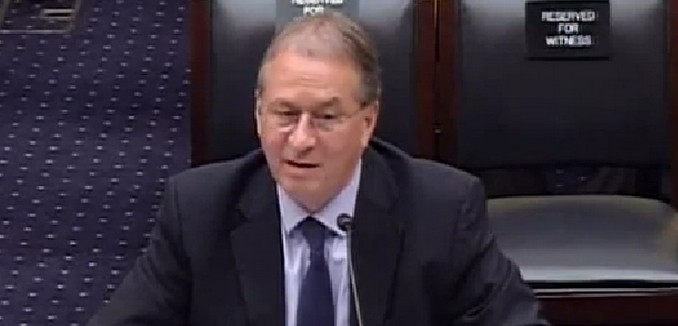In prepared testimony (.pdf) before a House Foreign Affairs Committee hearing Wednesday, David Albright, founder and president of the Institute for Science and International Security, stated that the emerging agreement with Iran over its nuclear program needs to be significantly strengthened, particularly when it comes to verifying compliance with the deal.
Albright insisted that Iran must make concrete progress in disclosing the possible military dimensions of its nuclear program prior to receiving sanctions relief, because “an agreement that side steps the military issues would risk being unverifiable.” Furthermore, he argued that the P5+1 nations should not lift United Nations Security Council-derived sanctions until the International Atomic Energy Agency (IAEA) concludes, based on inspections and full disclosure of past weapons work, that Iran’s nuclear program is peaceful. Albright stated that the inspections Iran had agreed to were not sufficient, and that prompt access to facilities anywhere in the country, including military facilities, was needed.
Committee Chairman Rep. Ed Royce (R – Calif.) also emphasized a stringent verification process, stating that “when it comes to negotiating an inspections regime over the next two months, the U.S. must gain ground, not retreat.” The Iranian regime has rejected the idea of allowing inspections at Iranian military facilities.
At the hearing, lawmakers and nuclear proliferation experts discussed the drawbacks and deficiencies of the emerging deal with Iran. During the question and answer segment (video embedded below), Royce expressed frustration that the United States has conceded to Ayatollah Ali Khamenei’s red lines, including maintaining enrichment levels, not dismantling any of its nuclear facilities, continuing centrifuge research and development, and acquiring an industrial-sized program. Former Assistant Secretary of State for International Security and Nonproliferation Stephen Rademaker concurred, stating that the “final agreement is pretty much consistent with the Iranian red lines, and bears little relationship to the red lines that were declared on our side going in.”
In his prepared testimony (.pdf), Rademaker asserted that the major drawback of the deal was that it “will represent acceptance by the international community of Iran as a nuclear weapons threshold state” and that in 10-13 years, Iran will be allowed to have an industrial-sized nuclear capacity with, as President Barack Obama himself acknowledged, a breakout time close to zero.
Albright also drew attention to the fact that Iran has engaged in illicit procurement for its nuclear, missile, and military programs, and that President Hassan Rouhani has even bragged about it. Therefore, he urged any final agreement to include “a ban Iranian illicit trade in items for its nuclear programs while creating additional mechanisms to verify this ban.”
When asked by committee ranking member Rep. Elliot Engel (D – N.Y. ) about the effectiveness of the “snapback,” the Obama administration’s proposed strategy of rapidly re-imposing multilateral sanctions in response to a major Iranian violation of a potential deal, Albright answered that in practice, it will be very difficult to do so within the year-long timeframe consistent with current estimates of Iran’s breakout capability, and that “you’ll be forced at that point to confront a military option, won’t be able to rely on the effective sanctions kicking in and having an effect.” Rademaker added that any United Nations Security Council vote on the reinstatement of sanctions would require the consent of Russia, which will likely be very hesitant to reimpose them.
The hearing also focused on the regional implications of a potential deal with Iran. Engel expressed discomfort with negotiating with Iran while its destabilizing activities and support for terror continue, and Royce voiced concern with what the Iranians are doing and will do with the money from the sanctions relief. He referenced reports that Iran has been reconciling with Hamas and providing increased funds for the rebuilding of tunnels and the replenishing of their missile arsenal. Royce’s concerns mirror comments made by John Hannah at a recent Jewish Institute for National Security Affairs event, asserting that Iran is likely to “redouble their efforts to destabilize the region and assert their hegemony.”
Rademaker also noted that Iran’s status as a threshold nuclear state would have significant bearing on the way Iran would be treated by other states, “because countries that are able to produce nuclear weapons virtually overnight have to be treated by the rest of the world as if they already have nuclear weapons.” Moreover, Saudi Arabia and other Sunni rivals will seek similar nuclear capabilities, which would cause a “cascade of nuclear proliferation in the Middle East.” Rademaker pointed out that having allowed Iran to maintain its nuclear capabilities, it would be extremely difficult to convince the Saudis, who are American allies, not to pursue nuclear capabilities. Rademanker’s observation echoed concerns about an Iran deal leading to nuclear proliferation in the Middle East, expressed recently by former IAEA deputy director general Olli Heinonen and Foreign Policy editor David Rothkopf.




